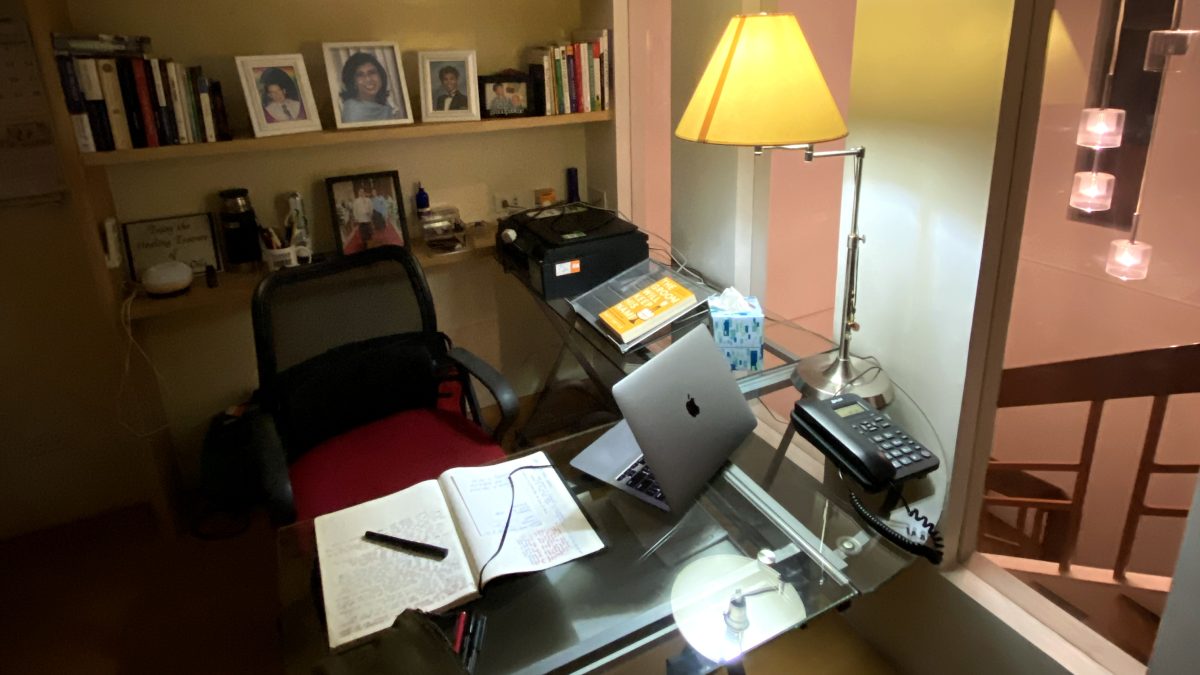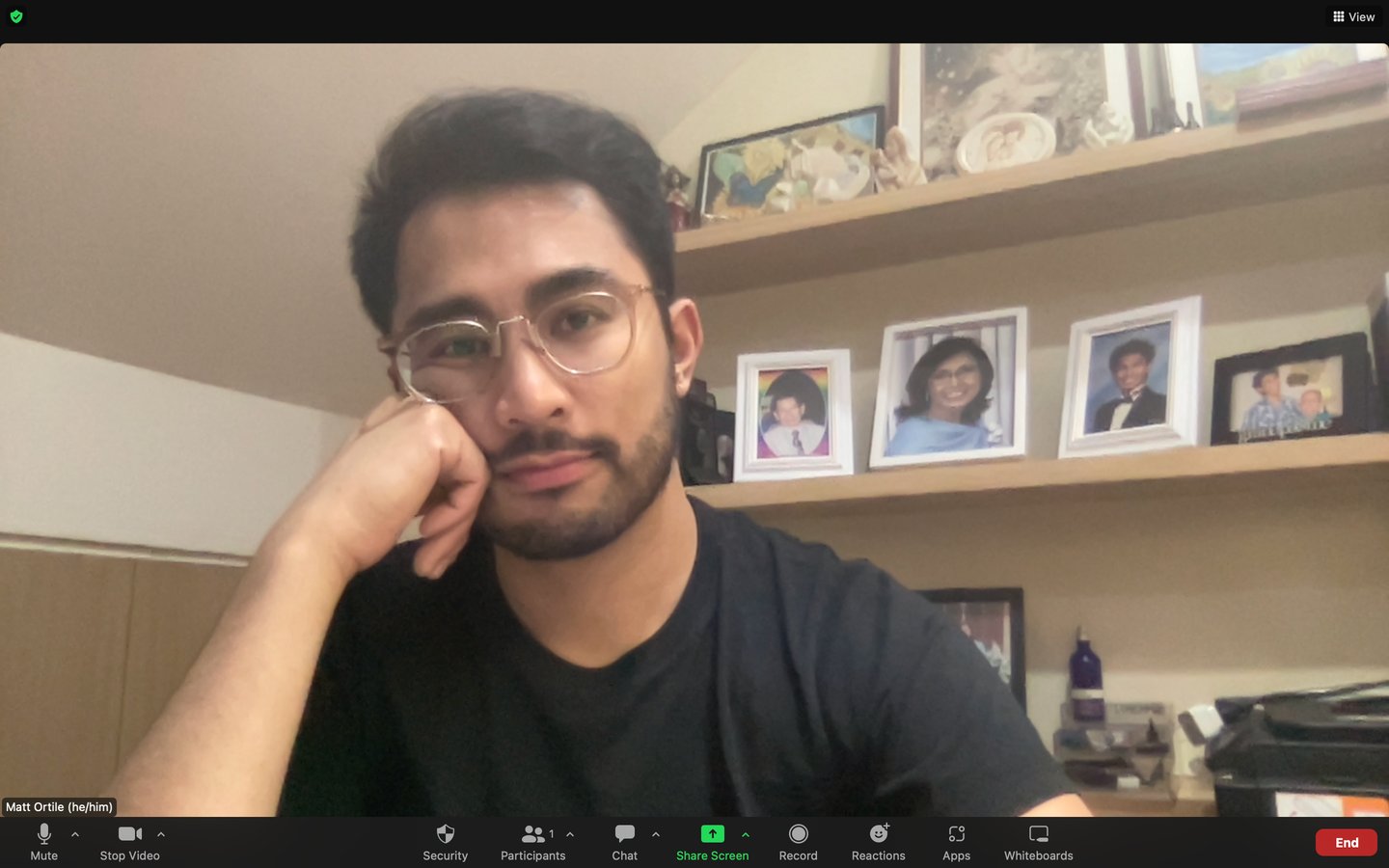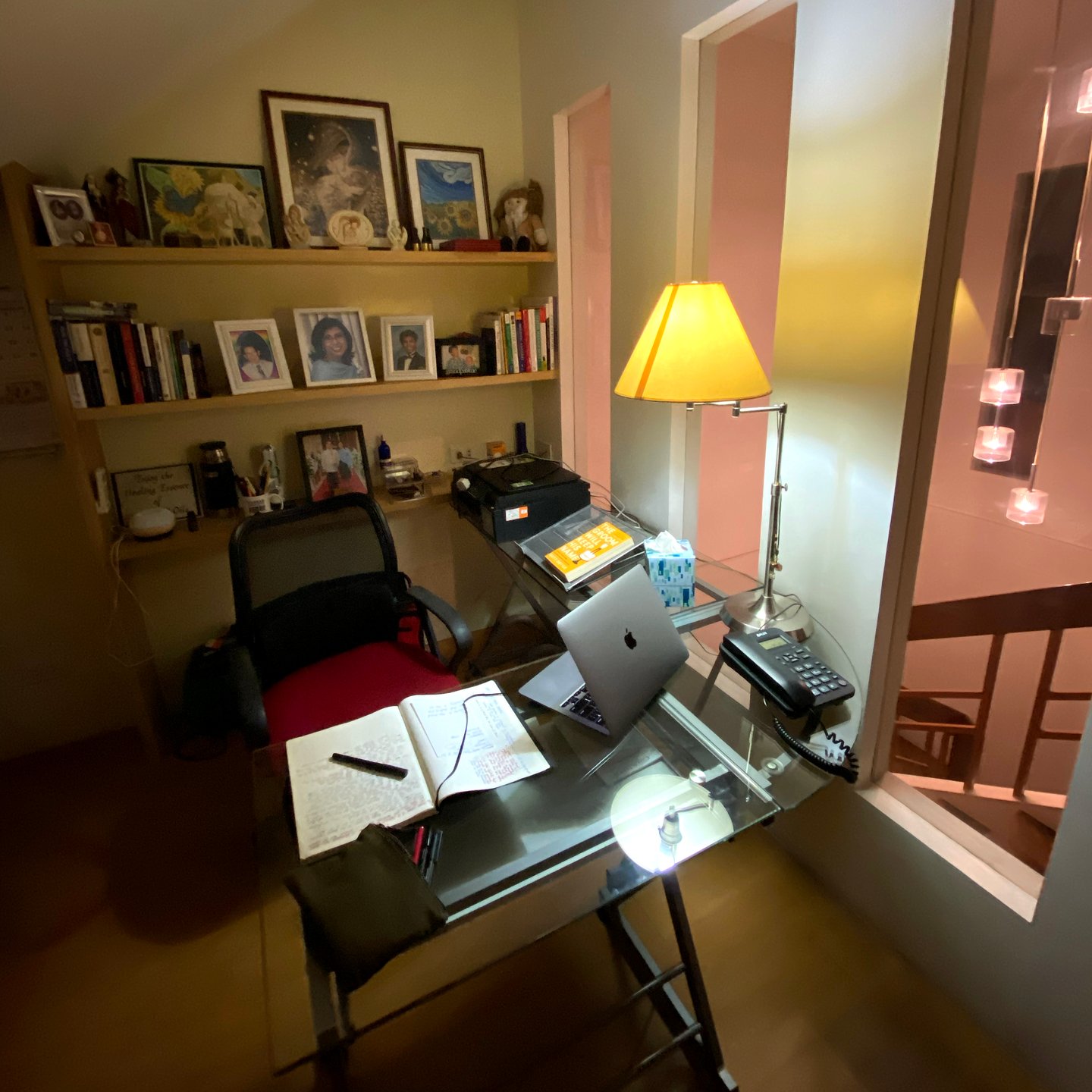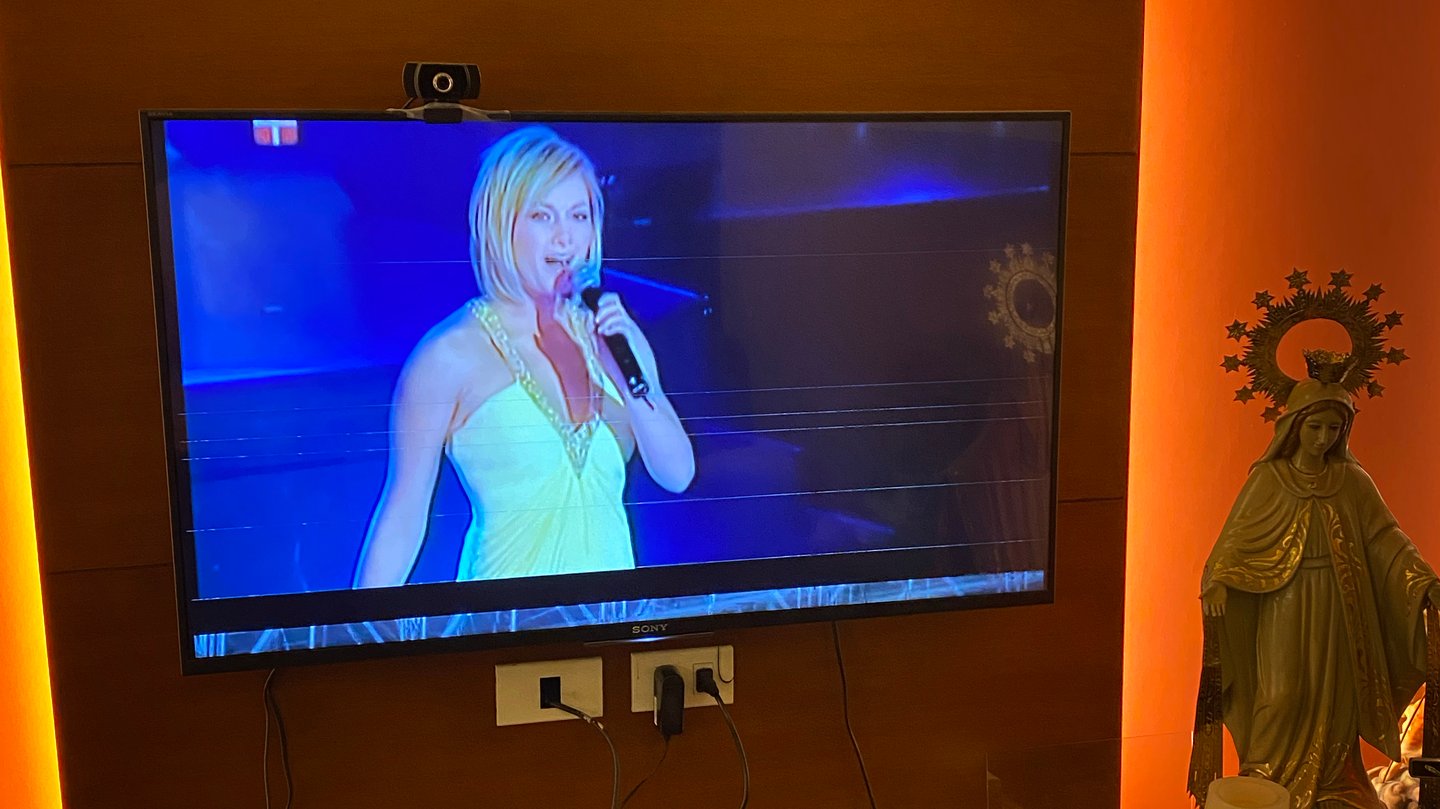Don’t Write Alone Where We Write
Wherever I Am, I Write From a Place of Grief
Walang katapusan ang dalamhati. What else can I do but live through it? Write through it?
It’s 4:44 a.m., I have a fiction workshop in sixteen minutes, and I am at my mother’s desk.
I’m in Manila, in the town house where Mom died in 2020, in her home office on the third floor. The internet connection up here was feeble when she was alive, so she often worked at the dining table downstairs. In preparation for my monthlong visit—two years too late—Dad had the Wi-Fi improved. These days, he takes his Zoom meetings in his office, across the landing from Mom’s. He suggested I take my writing class here. A portrait of Mom on her bookshelf watches over me when I do.
Photograph courtesy of the author
Today is also her second death anniversary. Well, technically, it was yesterday; it’s already June 14 here. But it’s still June 13 in New York, where I was grounded when Mom passed away at the height of the pandemic—not of Covid, but of cancer. The last time I saw her was in January 2020, before everything fell apart. This is the first time I’ve been back to the Philippines since. When I arrived two weeks ago, Dad embraced me tightly, crying behind his N95.
Going into this visit, I knew I would write about it. The plan is for my next nonfiction book to be about grieving her. This is, I told my accountant, a reporting trip. But part of me wishes I never packed my notebooks. Yesterday—today?—Dad and I were reminiscing over dinner and got into the ritual divulging of secrets. (One that I can share: When Mom was pregnant with me, she nearly miscarried. She never told me, took the fact with her to the family columbarium.) As Dad told me stories, my hand itched for a pen, the back of a napkin, the Notes app on my phone. But I willed myself to be present. I still feel guilty for having been absent.
To connect with and commemorate her, I’ve been writing about her. To her. While writing my first book, I faltered during its gestation. Frustrated with the arduous path to publication, I asked Mom, “Who would even read it?” She said, “I would.” Ever since, she has been my North Star, my eternal audience of one. I knew, even then, I would write about what she said to me. (Page 228 in the paperback version of The Groom Will Keep His Name . Check it out.) That tension between living the moment and writing the moment, as a memoirist, never fades. At this point, it feels natural. Permit me a cliché: What is writing if not living? And vice versa?
Photograph courtesy of the author
I should say I am delirious and awake this early (workshop is over; it’s now 7:47 a.m.) because my writing class is timed for the western hemisphere, i.e. 5:00 p.m., Brooklyn time. Manila and New York are on opposite ends of the day, of the earth. It’s been hard and weird—to have confirmation that she is physically gone—but I’m grateful to be here at last. The first time I attended workshop from Mom’s office, I considered staying up, being a Morning Writer for a change. I just barely eked out a sentence for my novel before returning to the guest room. I slept until noon.
My daily rhythms are fucked, but I’m making do. Dad occasionally drops me off to spend a working afternoon at Starbucks while he does his rounds at the hospital or attends literal postmortems over Zoom. At the end of the day, I bring him pastries for the next morning’s breakfast, or he joins me somewhere for dinner. No one cooks at home anymore. Their housekeeper comes once a week to tidy the town house and do meal prep for Dad. She made lots of chicken recently; appreciative but saturated, Dad said, “Titilaok na ’ko.” So we went to Café Breton for galettes tonight.
It’s 8:33 p.m., I’m working on the couch, and Dad is dancing to German schlager music playing on YouTube.
Photograph courtesy of the author
So, actually, I lied. I suppose he and I share this nightly rhythm at least. After dinner, Dad tires himself out with a little boogie or an action movie on Netflix while I do work for this magazine. I should be upstairs, getting through drafts in the quiet of Mom’s office. But I prefer the bustle of activity, of baristas brewing coffee, of Dad’s Tanzparty jeden Abend. I like simply sharing the space with Dad. It helps. I feel Mom’s absence more keenly this way, and more safely somehow.
I wrote a speech on this couch last week, for Mom’s memorial ceremony over Zoom. Dad gave one of his signature PowerPoint presentations, featuring photographs of him and Mom and me. For my part, I delivered a tight eight hundred words about how grieving is a constant cycle of saying hello and goodbye: “ Hello when I think of her; goodbye each time I do.” While I was writing, Dad helped me figure out the best Tagalog word for grief . We settled on dalamhati —with roots in the Proto-Austronesian daləm , meaning deep or inside , and the Malay hati , signifying the liver or the heart. Used in a sentence: Walang katapusan ang dalamhati. Or: There is no end to grief.
In visiting Manila, I half expected to uncover a deeper level of bereavement, the “hard mode” on which I should have been playing all along. For two years, I experienced my grief at a distance , as seismic waves. I had it easy, I thought; I was spared from the brunt of it. Here, now, as I write from its hypocenter, it hasn’t felt terribly different. Sure, my visit has introduced a new chapter. To sit where Mom once did, to take up her mantle in some ways, does reveal a facet of my grief I hadn’t yet studied. (More on that to come in future essays, naturally.)
Walang katapusan ang dalamhati. Or: There is no end to grief. But I don’t think this trip—or my writing, for that matter—is about getting “closure” or “moving on,” as some well-meaning friends have opined. When I leave the Philippines in two weeks, I won’t be leaving my grief, heavy as it is, in the guest room. I’ve had two years thus far to examine it, to appreciate it, to recast it as a reminder of how much love I have for Mom, always. It’s an integrated part of me. And so is she. Walang katapusan ang dalamhati. What else can I do but live through it? Write through it?
Dad just asked, dancing, if I’d like him to turn down his music. No, I said, turn it up if you like. I can write through anything.



